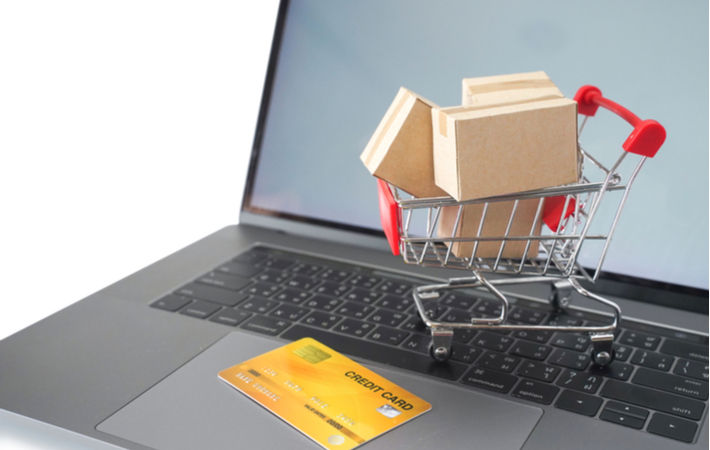Amazon continues to dominate the e-commerce sector as world’s most valuable and strongest retail brand, with a brand value growth of 15 per cent at $254.2 billion. Chinese brands are also witnessing a strong growth—Alibaba.com is the fastest growing brand in Brand Finance Retail 100 2021 ranking, up by 108 per cent. Walmart’s value was up by 20 per cent.
Supermarkets recorded an average brand value growth of 6 per cent. E-commerce brands are the fastest growing in the ranking, recording a 38 per cent brand value increase on an average.Amazon continues to dominate the e-commerce sector as world's most valuable and strongest retail brand, with a brand value growth of 15 per cent at $254.2 billion. Chinese brands are also witnessing a strong growth-Alibaba.com is the fastest growing brand in Brand Finance Retail 100 2021 ranking, up by 108 per cent. Walmart's value was up by 20 per cent.#
Various types of retailers have been affected by the pandemic differently, with e-commerce brands faring the best, recording an average brand value growth of 38 per cent and department stores suffering the worst, losing 11 per cent of brand value on an average.
Amazon is one of the few brands that has benefitted considerably from the pandemic and the resulting unprecedented surge in demand as consumers turned online following store closures.
Amazon has acquired 11 passenger planes from struggling North American airlines to expand its air logistics capabilities. A tactical purchase to support its fast-growing customer base, but also a strategic move towards building its own end-to-end supply chain, the fleet can allow the brand to become a serious contender in air transportation in due time, Brand Finance said in a press release.
Alibaba.com’s brand value was $9.2 billion, simultaneously jumping from 10th to 6th in the ranking. Alibaba Group subsidiaries, Taobao, up by 44 per cent to $53.3 billion, and Tmall, up by 60 per cent to $49.2 billion, have enjoyed parallel successes, their online business models providing ease of access and convenience for consumers.
JD.com enjoyed an 82 per cent brand value increase to $23.5 billion, following a 30 per cent rise in its annual shopper count—its fastest pace in two years. Japanese e-commerce brand Rakuten has also cashed in an impressive brand value boost, up by 49 per cent to $7.7 billion, and simultaneously jumped 8 positions to 26th place in the ranking.
German online retailer Zalando is the highest new entrant in 39th, following a 49 per cent brand value increase to $4.7 billion.
Many traditional brick-and-mortar retailers, which have successfully leveraged technology to offer online delivery options and develop digital in-store improvements, have also fared well during the COVID-19 lockdowns.
Walmart celebrated a 20 per cent increase in brand value to $93.2 billion and retained its spot in second, following an impressive spike in earnings. Similar strategies have been beneficial to fellow hypermarket Target (up by 30 per cent to $20.7 billion), Dollar General (up by 28 per cent to $9.6 billion), and Costco (up by 28 per cent to $28.9 billion) in the United States, as well as E.Leclerc (up by 27 per cent to $8.3 billion) and El Corte Inglés (up by 19 per cent to $6.1 billion) in Europe, which have all seen significant brand value growth.
TJ Maxx endured a difficult year, becoming the fastest-falling retail brand, down 32 per cent to $6.5 billion. The retailer’s struggles are largely due to store closures and a decline in apparel sales during the pandemic. Department stores have taken the biggest hit over the last year across the whole sector, losing 9 per cent of brand value on average.
Ross Dress for Less (brand value $4.6 billion) has no online presence and no e-commerce availability, which has completely halted growth and profits as the brand negotiates store closures amid lockdowns.
The second most valuable sub sector, behind e-commerce, is supermarkets. Thirty seven supermarket brands feature in the ranking, with a cumulative brand value of $185.3 billion. This year, supermarkets have increased their brand values by an average of 6 per cent.
The two highest ranked supermarkets are Germany’s Aldi and Lidl, posting an 8 per cent brand value increase and 9 per cent brand value decrease respectively.
In the United Kingdom, supermarket brands have also recorded mixed results. The most valuable supermarket brand in the nation, Tesco, dropped by 9 per cent to $10.0 billion. Conversely, Asda (brand value $6.5 billion) and Morrisons (brand value $3.3 billion) both witnessed a slight uptick in brand value this year, increasing by 2 per cent and 6 per cent respectively.
France’s Carrefour lost 7 per cent of brand value to $8.2 billion, losing out on its top 20 spot, slipping to 24th.
Fibre2Fashion News Desk (DS)
